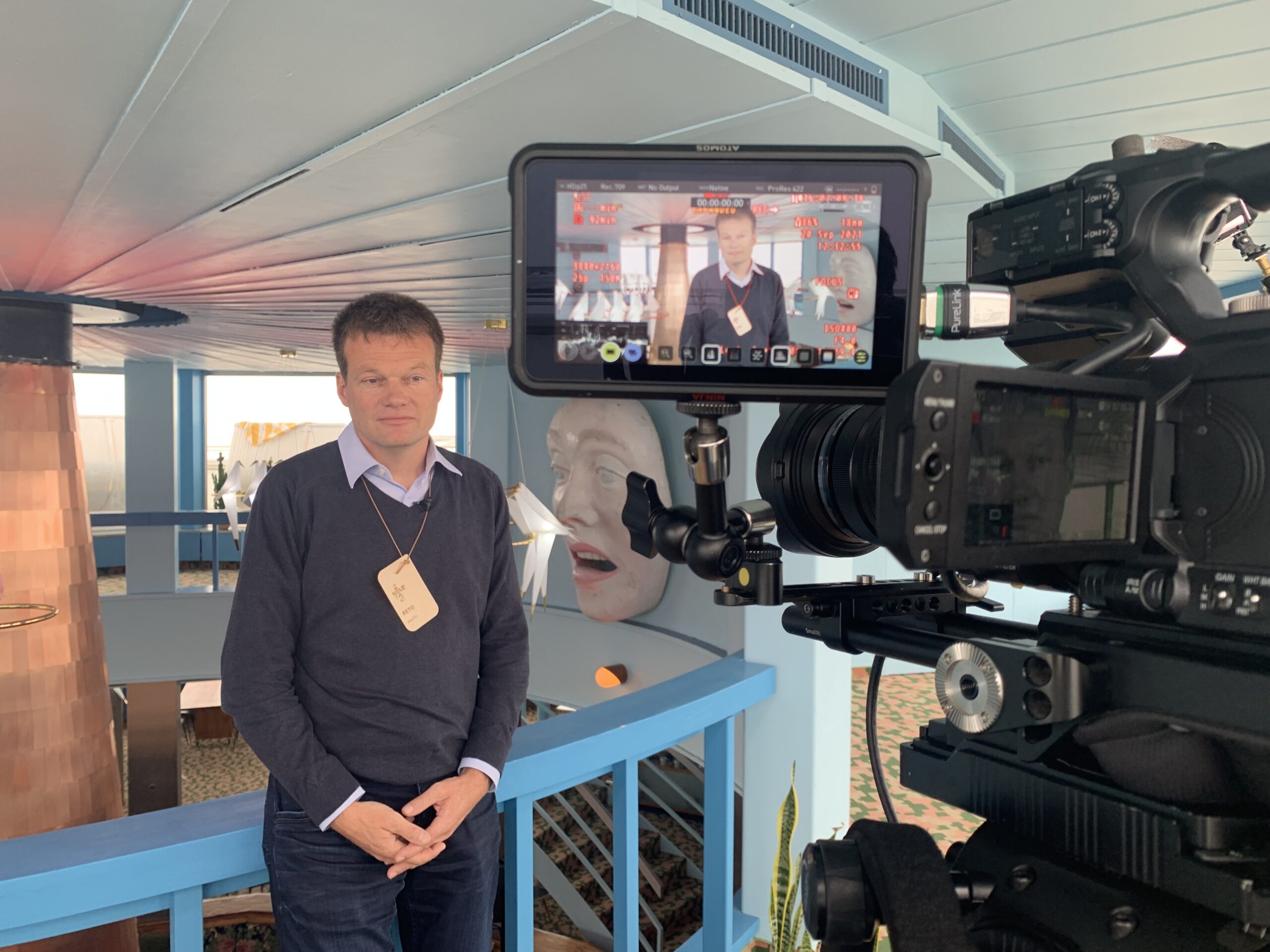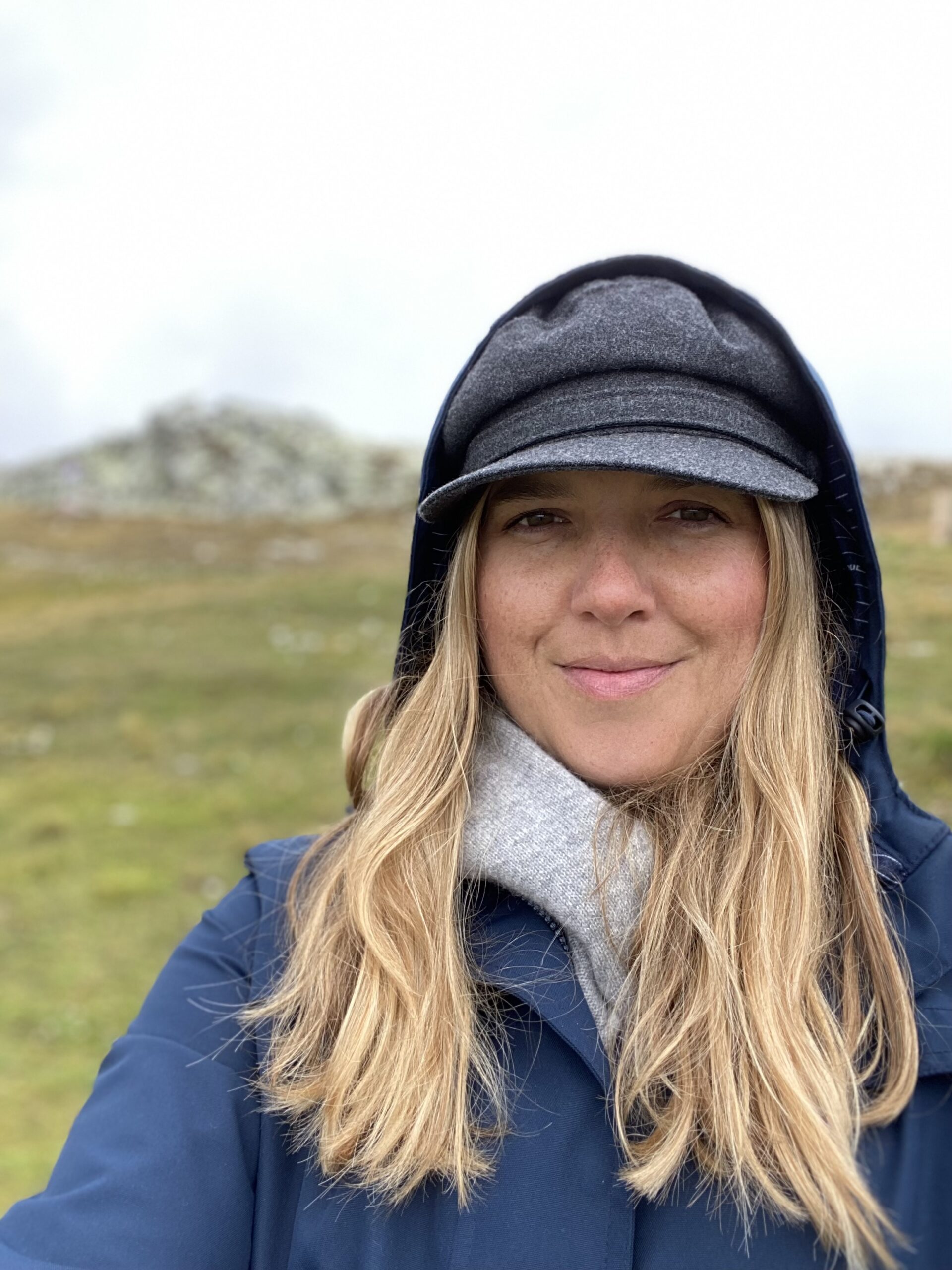Laax. A beautiful mountain resort situated in the Swiss Canton of Graubünden. Best known as a freeride snowboarder's paradise, the village was host in September 2021 to the first ever gathering of the [y]our 2040 community, a coalition of the willing focused on "the world we want to co-create." Supported by ETH Zurich, the event included participants from diverse backgrounds, all connected by a common goal and shared values. Taking the opportunity of being onsite to talk to some of them, we want to make the link with our RETHINKING LIVING campaign, a virtual red-thread we have been running since the start of the pandemic.
From Laax to Davos: Reflections on RETHINKING LIVING, Ep. 7
Episode 7: Reto Knutti, Professor & Climate Scientist, ETH Zurichby Viktoria Ivarsson
The Journey Begins
RETHINKING LIVING invites us to consider the grand challenges and global issues of today through the lens of the latest science and knowledge. What is life? How do we live? What are the consequences of our lifestyle choices? We asked participants in Laax to tell us what are the questions that keep them up at night, and how they see the future evolving. This video series distills their reflections, to help us think about what could, and what should come next. ETH Zurich will take up these questions in its RETHINKING LIVING Pavilion, a space designed to promote dialogue and exchange with a broad audience during the World Economic Forum's Annual Meeting 2022 in Davos. Since filming, the meeting has been moved from January to May due to the pandemic.
Understanding the Value of Scientific Information

Photo credit: Daniel Barnbeck
In episode 7, we look at climate science. Reto Knutti is a Swiss climate scientist and Professor of Climate Physics at ETH Zurich's Institute for Atmospheric and Climate Science. He disusses the role of science in the climate change debate, and the responsibility to create a dialogue that includes all stakeholders, including society. You can see his clip above and read the edited transcript of his talk below. Follow him on Twitter at @Knutti_ETH
For additional resources and further information, visit:
https://your2040.com
https://ethz.ch/en/the-eth-zurich/global/events/rethinking-living.htm
Institute for Atmospheric and Climate Science, ETH Zurich
For additional resources and further information, visit:
https://your2040.com
https://ethz.ch/en/the-eth-zurich/global/events/rethinking-living.htm
Institute for Atmospheric and Climate Science, ETH Zurich
My name is Reto Knutti. I'm a climate scientist working at ETH Zurich; we develop climate models, predict the future, work on scenarios, but also I'm interested in how we make the way from the science, from the facts to society. We're here up in the mountains of Laax and we're talking about how to make change happen, how to implement solutions, how to bridge from science to society, entrepreneurs and so on.
My vision for 2040 is that we're going to solve the world's most pressing problems; and climate change being certainly one of them, the one I work on, but not the only one. We know so much about climate, about the system. We know the technology. Essentially, we're lacking political will to make the relevant decisions that need to be made today. My vision is that we get the right people together, we get the right stories together because ultimately it's going to be about engaging people. It's going to be motivation about stories to tell so we can make those things happen.
As a scientific university, technical university, we have multiple reports, of course, we are educating the next generation of students. These are the people who are going to be in charge of making the changes in 10 years, 20 years from now. On the research side, we're developing the technology solutions and we need to make sure that these get into practice. We work with stakeholders who work with private industry and so on. But what sometimes gets forgotten, I think, is that we also have a broader role in society.
We need to actually talk to the public. Talk to the stakeholders, the policy makers, to not just tell them what the science is, but help them to engage and help them to understand what's the value of scientific information.
We've seen it in the COVID crisis right now that the facts are not enough. You need people to explain what those facts mean. The context is very important. This question of stakeholder dialogue policy is something that I'm really interested in, and I think there's a huge potential to move forward on that. Also from us as scientists in a technical setting.
My vision for 2040 is that we're going to solve the world's most pressing problems; and climate change being certainly one of them, the one I work on, but not the only one. We know so much about climate, about the system. We know the technology. Essentially, we're lacking political will to make the relevant decisions that need to be made today. My vision is that we get the right people together, we get the right stories together because ultimately it's going to be about engaging people. It's going to be motivation about stories to tell so we can make those things happen.
As a scientific university, technical university, we have multiple reports, of course, we are educating the next generation of students. These are the people who are going to be in charge of making the changes in 10 years, 20 years from now. On the research side, we're developing the technology solutions and we need to make sure that these get into practice. We work with stakeholders who work with private industry and so on. But what sometimes gets forgotten, I think, is that we also have a broader role in society.
We need to actually talk to the public. Talk to the stakeholders, the policy makers, to not just tell them what the science is, but help them to engage and help them to understand what's the value of scientific information.
We've seen it in the COVID crisis right now that the facts are not enough. You need people to explain what those facts mean. The context is very important. This question of stakeholder dialogue policy is something that I'm really interested in, and I think there's a huge potential to move forward on that. Also from us as scientists in a technical setting.

Photo credit: Viktoria Ivarsson
About the author
Change Agent. Go-to Person. Viktoria Ivarsson is the International Relations Officer in the Office of the President of ETH Zurich, where she works on projects and events of international scope to increase the visibility of the university worldwide. She also manages the ETH Circle, an international network of alumni and friends of ETH Zurich who act as ambassadors. Formerly with EHL School of Hospitality, Hirslanden, and the World Economic Forum, Viktoria holds an MAS in Sports Administration and Technology from the Swiss Federal Institute of Technology in Lausanne (EPFL), and an MA in International Relations from the Graduate Institute of International and Development Studies (HEI). A Swiss and Swedish national, she is fluent in 4 languages, and is currently learning German. A member of Nordiska, the Nordic Rowing Association, she can be found most mornings rowing on Lake Zurich. You can follow her on Twitter at V_Ivarsson.
comment
Please activate comment.


